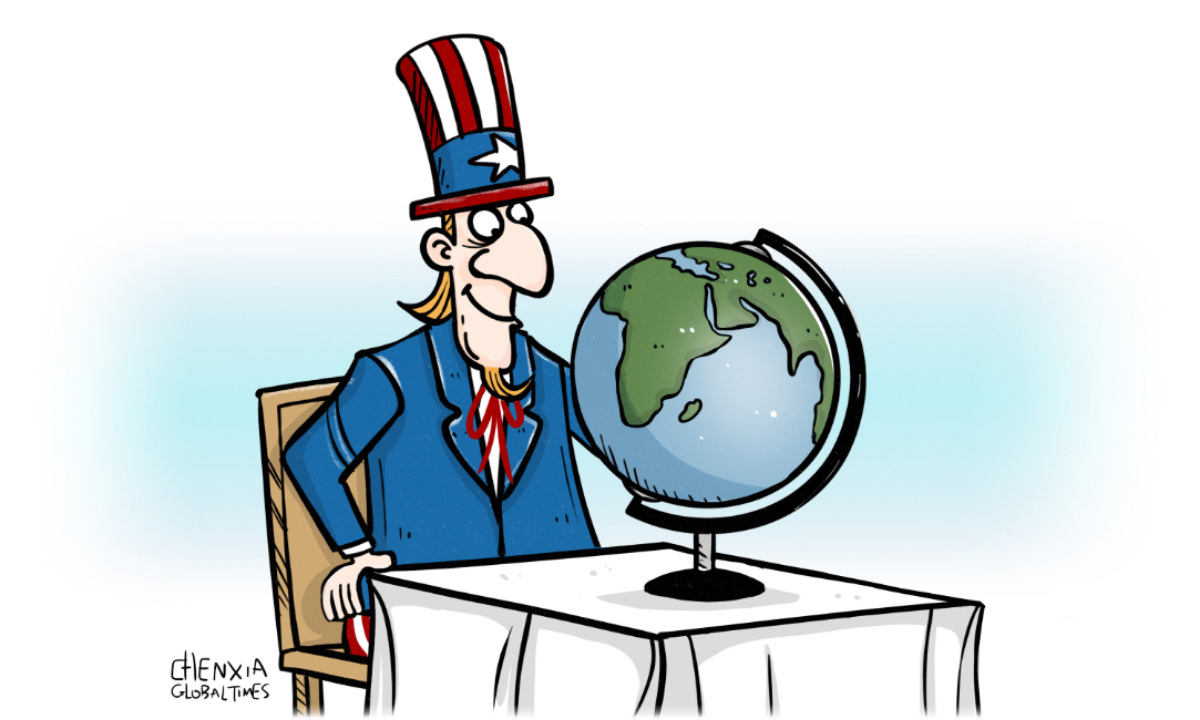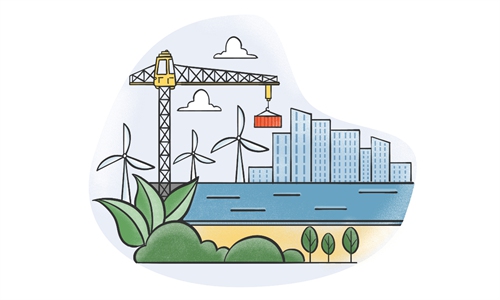
Illustration: Chen Xia/Global Times
Editor's Note:
What do you think is the major difference between Africa-China cooperation and Africa-US cooperation? What roles do you think China and the US will play in Africa's development in the future? Ovigwe Eguegu (Eguegu), policy advisor at Beijing-based consultancy Development Reimagined and co-founder of think tank Afripolitika, shared his views with Global Times (GT) reporter Li Aixin.
GT: From December 13 to December 15, President Joe Biden will host the US-Africa Leaders Summit. This is the second US-Africa summit after the one held in 2014. What do you think is the main driving force for Washington to resume the summit after eight years?
Eguegu: The rise of China has no doubt inspired the US to rethink its global strategy as well as regional strategies. It is in this light that recent increase in enthusiasm for engagement with Africa should be seen. Today, China is the biggest trade partner of the African region, Beijing's political and security relations with the continent is also growing to the benefit of both sides. Two of the main reasons for the growing ties with China is the consistent high-level contact between leaders of both sides, and the needs-driven approach of the relationship: whereby the Chinese side makes efforts to ensure African needs are well respected and addressed, despite power imbalances. The US seems to be taking a leaf off the China-Africa playbook. Next week's summit is in recognition of the importance of high-level diplomatic engagement in strengthening US-Africa ties. Similarly, for Biden's recently published Africa Strategy to find success, it needs such high profile engagement for Biden to communicate his objectives to African leaders, and to listen to responses from African side.
GT: The US said the summit will demonstrate US' enduring commitment to Africa. How would you comment on previous US commitment to Africa?
Eguegu: US-Africa relations needs a lot of work to reverse years of decline. For instance, by the end of 2021 US exports to Africa barely reached $26.7bn - 30 percent decrease from 2014. In 2021, US FDI to Africa was $45bn, a major drop from $70bn recorded in 2014. Clearly, trade figures support the assertion that US influence in Africa is in decline.
US influence in Africa is under significant strain, not just from an economic perspective, but from under performance of key US' Africa oriented initiatives like AGOA, which is out of touch with African realities.At the global structural level, there is waning confidence in Western leadership due to the lack of delivery of global public goods as seen during the peak of the COVID-19 pandemic. To this day, Africa is still the least vaccinated region in the world and that is largely due to issues with vaccine accessibility, availability and affordability, to which the US response fall short of rhetoric. Energy power remains a major challenge, and there is divergence on this issue as well. In September, Washington's Climate Envoy John Kerry visited some African countries, during which he cautioned African countries against the use of fossil fuels. This is in sharp contrast with sentiments across the continent, where reliance on hydrocarbons both for energy and revenue remains high.
GT: So far, according to media reports, "at an upcoming summit of African leaders in Washington this month, China hardly factors into the agenda." Yet observers believe the summit is one link of US diplomatic playbook to upgrade strategic competition with China by cozying up to developing countries, just like other summits, namely US-ASEAN summit, Summit of the Americas, and US-Pacific Island Country Summit. What is your take? Do those US-led summits yield substantial result?
Eguegu: There are real bilateral issues for which attention of US and African leaders is needed. At the core of US enthusiasm to engage with Africa lies the objective to counter Chinese influence on the continent. This is openly admitted by US officials. As such, it'd be naïve to think that major power competition doesn't play into Washington's efforts to host African leaders. The issue is what exactly can the US achieve in this regard, especially as across the continent there is an aversion to being made to choose. South African Foreign Minister made that clear during the visit of US Secretary Antony Blinken to South Africa. From an African perspective, there are needs to improve global peace and stability, and achieving high-quality multilateralism is also needed to address global issues such as climate change and global health.
There's a report in the East African Times that Biden hopes to sweeten the AGOA benefits. There's also a report in the Washington Post that the US is also going to announce its support for the inclusion of the African Union into the G20. It is expected that bilateral trade and investments deals would be announced at the summit but Biden recognizes the need for outcomes that are continent-wide. Reviewing AGOA and supporting the AU's G20 membership bid are going to help Biden achieve that. But one could consider these as low hanging fruits, as Washington is already late, considering announcement of support made by President Xi and President Macron at the Bali Summit.
GT: What do you think is the major difference between Africa-China cooperation and Africa-US cooperation?
Eguegu: In comparative terms, the tendency to lecture African leaders is an obvious feature in US engagement with Africa which isn't observable in China-Africa relations. There are mutually agreed principles and norms which underpins China-Africa relations. Also, emphasis on coordination and consultation which brings together Chinese leaders and African ambassadors in the lead up to FOCAC enormously enriches the processes and outcomes of FOCAC.
GT: What roles do you think China and the US will play in Africa's development in the future?
Eguegu: Each country has its unique benefit it brings to the continent. But it is widely accepted that improvement in US-China relations is better for the continent because addressing some of the structural issues at major multilateral platforms require both countries reaching consensus. This hasn't been easy.



